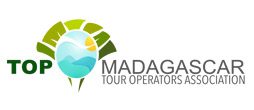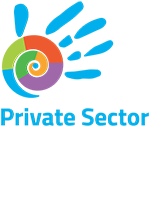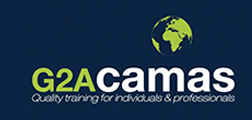Prepare your trip
Home >
Prepare your trip
In order to better plan your trip, you will find below the essential information to plan your activities as well as your experience once there. Each destination is unique, so you will have the essentials to make your stay unforgettable.
VISA
- VISA can be obtained upon arrival at the airport.
- The traveler can also apply for the tourist E-visa via the following link: http://www.evisamada. gov.mg/en/ but payment must be made directly upon arrival at the airport
- From January 2016, the tourist visa costs 20 euros with a tourist tax of 10 euros regardless of the nationality of the traveler.
BEST TIME TO VISIT
Madagascar can be visited all year round.
The best period is from April / May to November during the dry season
From February to March, to avoid the East Coast due to the cyclone season
LANGUAGE
The main language of Madagascar is Malagasy, but English and French are also recognized as official languages, with a preference in use for French
There are many dialects depending on the regions and ethnic groups.
CHANGE
The currency of Madagascar is the Ariary. This is not convertible and it is advisable to make the change on site. Exchange offices are available in town, at airports and in some hotels. Avoid black traders on the street. Banks are mainly equipped with ATMs that accept international VISA and Mastercard.
HEALTH
No vaccination is required by Madagascar from its tourists, unless they have passed through an infected area. Antimalarial prophylaxis and injection of gamma globulin against hepatitis are recommended, as well as preventive measures against cholera and yellow fever. Regarding epidemics that may occur in the world, Malagasy health authorities are as responsive and informed as other states. Finally, if you are transiting or making a stopover of less than 12 hours in Addis Ababa, a note from the Directorate of Health Surveillance Epidemiological Surveillance indicates that there is no risk for the passenger of contracting yellow fever , and that it is therefore not necessary to be vaccinated to enter Madagascar
JET LAG
Madagascar is located at GMT + 3. The island therefore has a time difference of + 1h from South Africa, + 1h in summer and + 2h in winter from Western Europe, + 1h from Reunion and Mauritius, -4h from Thailand, and -5h from Singapore and Honk Kong.
ELECTRICITY AND TELECOMS
Electricity is usually 220V. Most hotels have their own generators. Provide a battery-operated device for extreme cases. For your calls, the Madagascar code is 261, and high-speed internet is widespread in hotels.
BANKING NETWORK
As the banking sector is developing strongly in Madagascar, the network is becoming increasingly densely populated and covers the entire island. All banks combined, the network will allow you to pay and withdraw with a VISA/MASTERCARD bank card in many cities on the island. Agencies are mainly equipped with vending machines and companies are increasingly equipped with electronic payment terminals, which will greatly facilitate your travels.
PURCHASE TO AVOID
The Convention on International Trade in Endangered Species of Wild Fauna and Flora stipulates that it is forbidden to bring back from your stay in Madagascar lemurs, dugongs, turtles, boas, Bemaraha chameleons, frogs red Antongil or Euphorbiaceae, Didieraceae or Apocynaceae. It is also forbidden to bring back objects classified as National Heritage such as aloalo, Zafimaniry window shutters and old documents.
SPECIFIC PURCHASES EXEMPT AND TAX-FREE
At the end of your stay in Madagascar, you can freely bring back 2kg of vanilla, 250g of perforated jewelry and 4 different crocodile skin items purchased from approved sellers (with vouchers and invoices). In addition to the airport, duty-free shops are available in town upon presentation of a return ticket and ID.
PHOTOS AND VIDEOS
If you want to take photos or videos professionally in parks and reserves, you must obtain permission from Madagascar National Parks. As elsewhere, ask permission before photographing.
TIPS FOR HIKERS AND VISITORS TO NATIONAL PARKS
For your hikes and hikes, we recommend that you provide appropriate clothing and equipment: walking shoes, repellents against mosquito and insect bites, survival cover… For your bivouacs, don’t forget to bring sleeping bags, a flashlight, an emergency kit, a water purification bottle and tablets and a Swiss army knife. During your visits to the national parks of Madagascar, you will be required to respect the code of conduct for visitors, otherwise you risk sanctions. For example: don’t leave litter behind, don’t leave marked paths, camp only in permitted areas, don’t take anything from the forest and don’t feed animals.
RECEPTION OF CHILDREN AND DISABLED PEOPLE
Very few sites or hotels, and transport facilities have facilities reserved for children, or to accommodate people with reduced mobility. Inform your agency in advance so that all arrangements are made upon arrival.
AVOID CULTURAL MISUNDERSTANDINGS
Here are some tips to avoid clumsiness concerning a Malagasy. Never despise the Fady (forbidden). Do not photograph anyone without their consent. Avoid talking loudly or showing nervousness. Slipping a few Malagasy words into a conversation is always appreciated. In addition, bargaining is a very common practice in Madagascar, whether for rickshaws or for taxis that do not have meters. As for the tips, they are left according to the appreciation of the customer.











